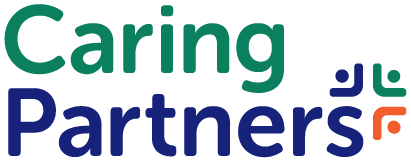Home Care Agencies
Sales Tips
Four Proven Ways to Win More Home Care Clients, Earn More Hours, and Retain Clients Longer

As a home care agency professional, you know that in-home assessments enable you to ensure that the care plan meets the client's specific needs. But, did you know that in-home assessments can create the type of relationship that contributes to more hours per client and better client retention? There’s a sales term for a series of techniques to build trust, establish rapport, and gauge the client's interest in services. It’s called the trial close.
Trial closes involve asking questions or making statements designed to elicit a response from the client. These questions or statements gauge interest and gather feedback. They are customer-centric ways to guide conversations and learn how to serve seniors and their families more effectively.
Assume the Partnership: This approach assumes that the client will choose your agency. You ask questions that assume the senior is ready to begin services. For example, you might say, "So, when would you like to get started?" If the client responds positively, you can discuss the next steps. If the client responds negatively, you can ask why. Either way, you’ve learned something important and moved the conversation forward.
Provide Alternatives: This involves presenting the client with two options and asking the client to choose one. For example, you might say, "We offer both hourly and live-in care options. Which one would work best for you?" Not only does this approach enable you to assess the client's needs and preferences but also affirms the senior controls the decision-making process. It’s a respectful way to determine how the client would like to proceed.
Summarize and Verify: With this approach, you summarize the key points of the conversation and ask the client to agree or disagree. For example, you might say, "Based on what you've told me, it sounds like you could use assistance with bathing and getting dressed. Is that correct?" This approach helps you ensure you have accurately assessed the client's needs. It also allows you to uncover any concerns or objections before moving forward with the care plan.
Confirm and Connect: Listen carefully to the client’s expressed needs and wants, then repeat back what the client said to you. This shows that you are engaged and interested in the senior and empowers the senior to choose you and your agency’s services. For example, you might say, "You mentioned that you're having difficulty with daily activities like bathing and dressing. Our caregivers are trained to help with those tasks. Would you like us to schedule a caregiver to come by and help you?" This approach helps you build trust and establish a commitment from the client.
These powerful communication tools allow you to address any concerns and ensure the care plan meets all client's specific needs, which helps you get the most billable hours. And, these techniques enable you to provide the highest quality of care, while also building strong relationships that lead to long-term success.
You May Also Like This
Home Care Agencies
Sales Tips
Four Proven Ways to Win More Home Care Clients, Earn More Hours, and Retain Clients Longer

As a home care agency professional, you know that in-home assessments enable you to ensure that the care plan meets the client's specific needs. But, did you know that in-home assessments can create the type of relationship that contributes to more hours per client and better client retention? There’s a sales term for a series of techniques to build trust, establish rapport, and gauge the client's interest in services. It’s called the trial close.
Trial closes involve asking questions or making statements designed to elicit a response from the client. These questions or statements gauge interest and gather feedback. They are customer-centric ways to guide conversations and learn how to serve seniors and their families more effectively.
Assume the Partnership: This approach assumes that the client will choose your agency. You ask questions that assume the senior is ready to begin services. For example, you might say, "So, when would you like to get started?" If the client responds positively, you can discuss the next steps. If the client responds negatively, you can ask why. Either way, you’ve learned something important and moved the conversation forward.
Provide Alternatives: This involves presenting the client with two options and asking the client to choose one. For example, you might say, "We offer both hourly and live-in care options. Which one would work best for you?" Not only does this approach enable you to assess the client's needs and preferences but also affirms the senior controls the decision-making process. It’s a respectful way to determine how the client would like to proceed.
Summarize and Verify: With this approach, you summarize the key points of the conversation and ask the client to agree or disagree. For example, you might say, "Based on what you've told me, it sounds like you could use assistance with bathing and getting dressed. Is that correct?" This approach helps you ensure you have accurately assessed the client's needs. It also allows you to uncover any concerns or objections before moving forward with the care plan.
Confirm and Connect: Listen carefully to the client’s expressed needs and wants, then repeat back what the client said to you. This shows that you are engaged and interested in the senior and empowers the senior to choose you and your agency’s services. For example, you might say, "You mentioned that you're having difficulty with daily activities like bathing and dressing. Our caregivers are trained to help with those tasks. Would you like us to schedule a caregiver to come by and help you?" This approach helps you build trust and establish a commitment from the client.
These powerful communication tools allow you to address any concerns and ensure the care plan meets all client's specific needs, which helps you get the most billable hours. And, these techniques enable you to provide the highest quality of care, while also building strong relationships that lead to long-term success.

